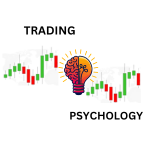Introduction to Trading Psychology
Trading Psychology. When we talk about buying and selling inside the stock markets, we tend to recognize loads on charts, marketplace sentiment, agency performance, and different outside elements. Even when we communicate approximately the abilities wanted by a trader to achieve success, we recognize knowledge and focus of the markets, analytical capability to examine and become aware of styles from charts.
One of the oft-left however essential elements is the psychology of trading. Most people could have heard specialists talk approximately no longer making emotion-pushed buying and selling choices. While that sounds logical, human feelings are complicated. This article is devoted to buying and selling psychology. We will speak approximately particular feelings to avoid and latch on to for a successful run as an inventory dealer.
What is Trading Psychology?
Trading Psychology is the look at the mind and behavior. Hence, when we communicate approximately trading psychology, we recognize a maximum of the emotions and feelings a stock trader encounters whilst trading.
Like in most components of our lives, the know-how of how our thoughts respond to certain stimuli and what they make us feel can lay the inspiration for a managed intellectual nation – an ability vital to being a hit dealer.
Human beings have complicated emotions. For instance, even if an inventory rate is falling, you would possibly determine to keep directly to it because you have been an ordinary client of a product provided by the organization and consider it.
Traders who better manage their feelings and emotions tend to make extra logical decisions compared to those who observe their ‘emotions’.
Some Prominent Emotions Faced by Stock Traders
While we experience several feelings on any given day, there are a few prominent ones that affect trader psychology that we would like to talk about today.

Fear
One of the first feelings that comes to thoughts whilst talking about inventory buying and selling is FEAR. It is a natural emotional reaction to a perceived risk. When you region a trade, you expect the market to transport inside the expected direction. Fear starts off evolving creeping in when the movement is inside the opposite route.
The potential loss stills fear within the thoughts of the traders and causes them to make unexpected decisions to square off their positions without a plan. Since humans are designed to fight worry is ‘fight or flight’, most investors opt for the flight (or redeem) choice when you consider that they can not combat the course of motion of the inventory charge.
Some not unusual conditions in which buyers face stock marketplace psychology worry are-
Not beginning a change due to the worry of now not getting it proper
Not selling a dropping change since they have to e-book the loss and the feasible capacity of convalescing losses if the fee starts off evolved growing
Selling too soon due to the worry of dropping income, and so forth.
Greed
After worry, GREED is the maximum commonplace emotion that inventory buyers have to war each day. In easy phrases, it’s far a disproportionate choice for earnings. This is a complex emotion considering buyers are there inside the market to make income. So, how much profit is too much profit?
If the markets are acting in line with their expectancies, then why do need to they go out of the position? Why no longer continue holding the placement and make extra earnings?
These are typical minds that GREED drives in our minds. This is more common if the markets are bullish and charges are rising. It pushes traders to preserve winning positions much longer than recommended and throws caution to the winds. While optimism is right, there is a thin line between greed and optimism that every dealer should become aware of and make sure that it’s far never crossed.
Hope
The most effective issue that separates inventory trading from playing is unnecessary HOPE. While ‘wish’ is a tremendous emotion, while it isn’t embedded in common sense, it can result in heavy losses.
Imagine buying a percentage given that your evaluation shows that the price will grow at some point of the day. After a preliminary hour of a surge, the stock price begins dropping. You are not able to apprehend the cause at the back of the drop in charges. This is while HOPE walks and forces you to trust that in case you preserve on your role for a little longer, the fee will begin growing once more and assist you recover your losses.
Traders who don’t know a way to control senseless HOPE tend to destroy their buying and selling capital with some wrong selections. It stops them from slicing their losses and/or booking profits even when the markets are in their favor in view that they HOPE for more.
Summing Up
Remember, the stock market is a volatile place. Furthermore, it is impossible to forecast how the price of any stock will move. Even while there are signs that point to a particular tendency, the trend might quickly change due to any outside influence. Therefore, maintaining emotional equilibrium and a stable mental state are crucial for making wise trading judgements.

